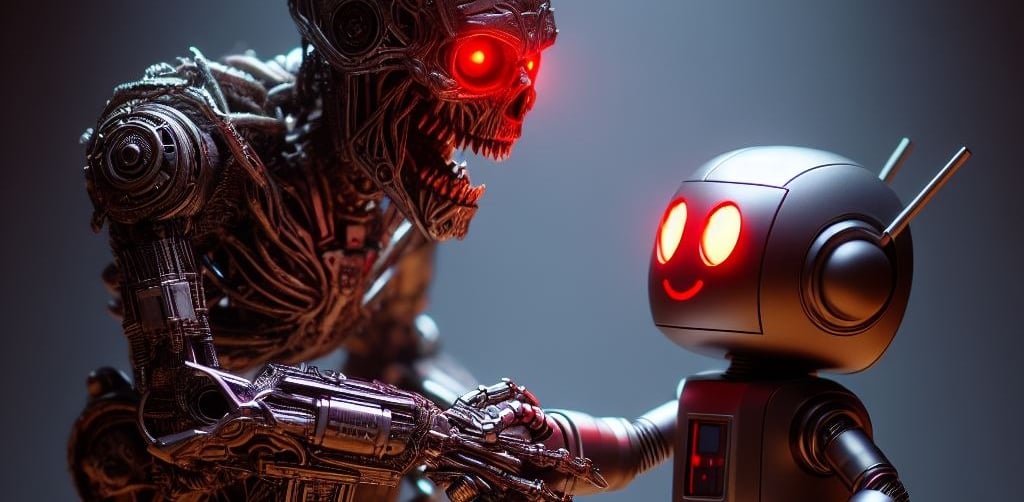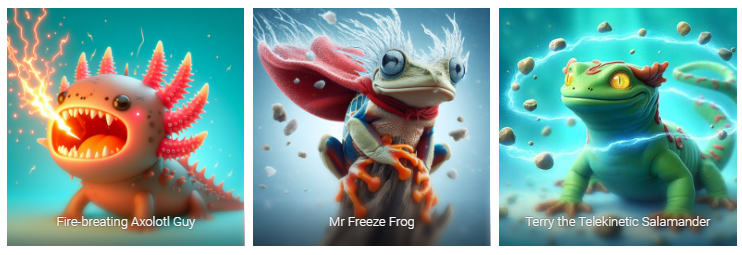Killer Robots? Teaching your Kids about AI
Julia @ Creators Academy
3/13/20243 min read


Unless you’ve been on Mars for the last 18 months or so, you’ll no doubt be aware of the hype around Artificial Intelligence (AI); the ability of computers and machines to perform tasks that typically require human intelligence, such as perception, learning, problem-solving, and decision-making. Even before the blanket news coverage of ChatGPT and its friends, AI was already a part of our daily lives, from Alexa and Siri to Netflix recommendations.
Here at Creators Academy we think that AI in the near term is probably overhyped, but we also believe that in the longer term it will have a massive impact on our lives in ways we cannot even imagine today.
Should you teach your kids about AI?
As AI becomes more prevalent and powerful, we believe that it is vital for the next generation to grow up as confident and capable users of this technology from as early an age as possible. Why?
Employability and career potential: According to the British Council, It is believed that as many as 65 per cent of today's students will be employed in jobs that don't yet exist. Equipping kids with AI knowledge and skills will help ensure their employability and career potential in the future. AI is not only relevant for STEM fields, but also for many other domains, such as arts, humanities, and social sciences. Many artists are fearful of Generative AI (or GenAI), with readily-available tools such as Dall-E, but the genie is out of bottle and we are going to have to learn to use it as a tool to enhance human creativity.
Critical thinking and digital literacy: Teaching AI to children helps develop critical thinking and digital literacy skills, which are crucial for navigating the complex and often biased information landscape. By learning how AI works, what it can and cannot do, and the ethical and social implications of using it, children can become more aware and responsible consumers and creators of technology.
Diversity and inclusion: To promote diversity and inclusion in the AI field, which is currently dominated by a few groups and perspectives. By exposing children from different backgrounds, genders, and abilities to AI, we can inspire and empower them to pursue their interests and passions, and to contribute to the development and use of AI for good.
To Stop Killer Robots - Nope, only joking! We don't really believe in Killer Robots 🤖
Why you can’t rely on UK schools to teach AI
The UK government has recently recognised the importance of teaching AI to young children, but it has been slow to roll out detailed policy. As a result, many (not all) teachers, parents and policymakers are not yet seeing the value or urgency of teaching it to children.
This is leaving the UK lagging behind other countries that have already implemented AI education programmes at primary level, such as China, Australia, and the US. These countries have developed curricula, resources, and activities that introduce AI concepts and applications to children as young as five, using stories, games, and experiments. They also aim to foster AI literacy, which involves not only technical skills, but also ethical, social, and creative aspects of AI.
How should parents fill the gap while the UK education system catches up?
While the UK education system is catching up with the AI revolution, parents can play a role in filling the gap and supporting their children’s learning in this area. We suggest that you educate yourself a little about common AI tools and talk about AI with your children. We were surprised at the meaningful conversations we had with our young primary school children about its benefits, challenges, and safety concerns. You can ask your children questions that encourage them to think critically and creatively about AI, such as:
What is AI and how does it work?
What are some examples of AI that you know or use?
How do you feel about AI and its impact on your life?
What are some of the advantages and disadvantages of using AI?
What are some of the ethical and social issues that AI raises?
How can you use AI for good and avoid harm?
We also started introducing our kids to AI Image generation (supervised of course) which captured their imagination enormously, leading to more questions and self directed offline activities like drawing and storytelling. We have a whole family of AI generated super hero amphibians - all with a story to tell. Here are some of our favourite images...


Contact Us:
© 2024-2025 Creators Academy. All rights reserved.


